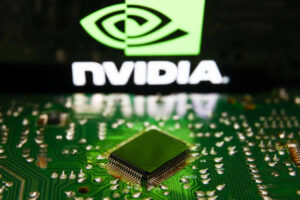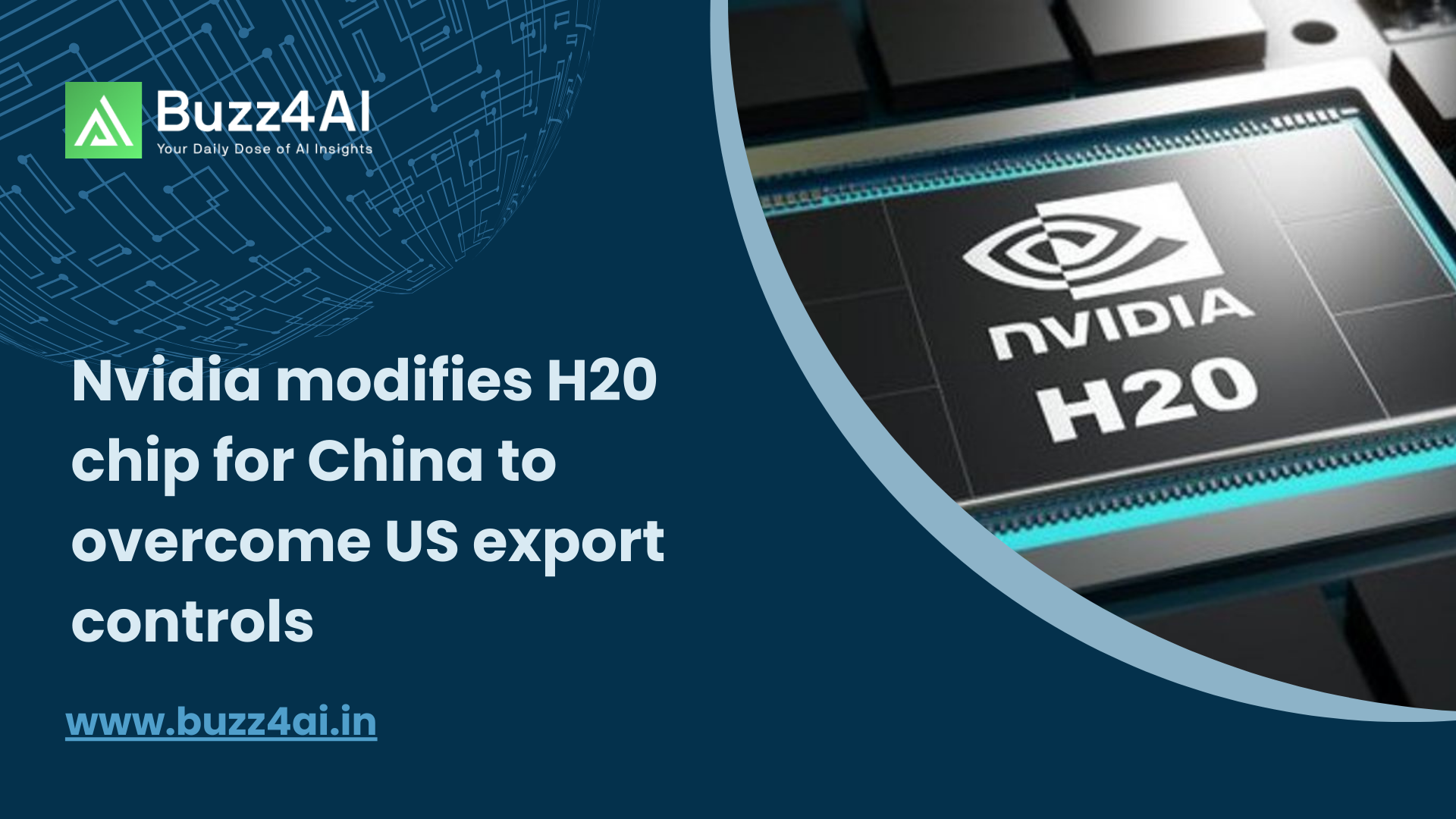Nvidia modifies H20 chip,Nvidia plans to release a downgraded version of its H20 artificial intelligence chip for China in the next two months, following U.S. export restrictions on the original model, three sources familiar with the matter told Reuters.
The US chipmaker has notified major Chinese customers, including leading cloud computing providers, that it aims to release the modified H20 chip in July, two of the sources said.

The revised chip, a version of the high-performance H100 series, is part of Nvidia’s broader effort to comply with U.S. export laws while retaining its footprint in China’s booming AI sector. Dubbed a major workaround, this modification could signal the beginning of a new era of tailored AI hardware for restricted markets.
The Plan for a Modified H20 Chip
Nvidia intends to launch a downgraded version of its H20 artificial intelligence chip for China specifically, according to Reuters. This follows recent US export controls that stopped sales of the original version of the H20 model without a license, as reported by Reuters.
The launch of the new chip will be in July, and Nvidia has already alerted its largest Chinese customers, such as the biggest cloud suppliers, including Tencent, Alibaba, and ByteDance, about the release, according to a report.
The chipmaker has formulated new technical thresholds to develop the modified H20 chip designs, as reported by Reuters. The changes will lead to a lot of downgrades from the original H20, such as very reduced memory capacity, according to the report.
This modified H20 reportedly features reduced computing throughput and altered interconnect speeds, staying just under the performance thresholds outlined by the U.S. Department of Commerce. The aim is to maintain market relevance without violating trade laws.
Why Nvidia Needs the Chinese Market
In the fiscal year ended January 26, Nvidia reported that China accounted for 13% of the firm’s total sales, which was $17 billion in revenue, according to Reuters. The US-based company has generated $18 billion worth of H20 orders since January, as per the report.
Meanwhile, Nvidia CEO Jensen Huang went to meet Chinese officials in Beijing last month and highlighted the importance of China as a key market for the company, just days after US officials announced the new export license requirements for the H20 chip.
China’s tech industry remains one of the fastest-growing in the world, with aggressive investments in AI infrastructure, autonomous vehicles, cloud computing, and robotics. By offering a modified chip, Nvidia keeps its brand and products in circulation while also supporting long-standing business relationships in the region.
Global Implications and Market Reaction
From a business standpoint, Nvidia’s strategy is being praised for balancing innovation, legal compliance, and market presence. Investors have responded positively, seeing the modified H20 chip as a practical way to avoid revenue disruptions in China.
However, geopolitical experts warn that such adaptations may prompt further revisions to U.S. export policies, especially if similar workarounds become a trend among other U.S. semiconductor firms.
What It Means for the AI Industry
The AI industry is already in a race, and chips like Nvidia’s are the engines powering it. Modifications to chip architecture for geopolitical reasons could become a norm in the coming years, especially as countries begin to regulate critical AI hardware more strictly.
While Nvidia continues to lead the global AI chip market, this move hints at the growing complexity of staying ahead while staying compliant. For startups, developers, and AI companies in China, the modified H20 chip still represents a high-value solution—though not quite on par with what’s available elsewhere.\
Final Thoughts :
Nvidia’s decision to modify the H20 chip for China is both a calculated risk and a strategic lifeline. It highlights the company’s adaptability and the growing challenges that come with being a tech leader in a divided world.
With The Plan for a Modified H20 Chip, Nvidia continues to serve a vital market without crossing regulatory red lines. But the question remains—how long can such strategies work as global tech policy becomes increasingly rigid?
For now, Nvidia’s dependence on the Chinese market ensures that we’ll see more creative solutions like this in the AI arms race.
For more posts visit buzz4ai.in






